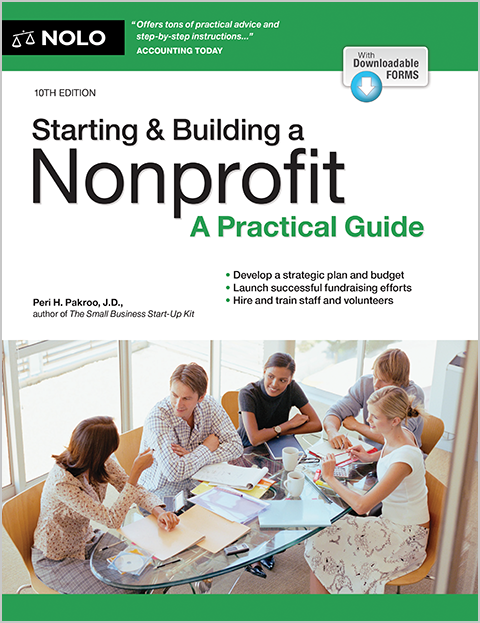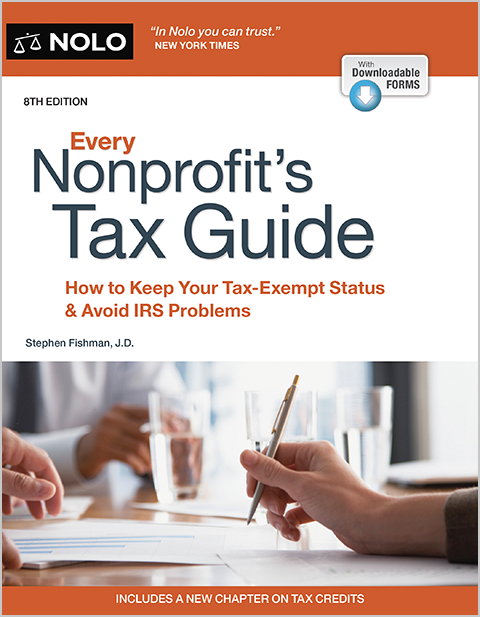Learn the basics about your nonprofit's important organizational and corporate documents: articles, bylaws, and first minutes.
Getting familiar with the key documents for your nonprofit corporation can be tedious, but it's essential -- these documents contain important rules about how you must operate your nonprofit. And, if you don't keep proper records, you could lose your corporate or tax-exempt status. Here's a primer on the most essential documents of a nonprofit corporation: articles of incorporation, bylaws, and organizational minutes.
Articles of Incorporation: Your Primary Corporate Document
The primary corporate document for every nonprofit corporation is its articles of incorporation. A corporation comes into existence on the date its articles of incorporation are filed with the state corporate filing office.
Articles of incorporation contain basic structural information, such as the name of the nonprofit corporation, its registered agent, registered office address, and the corporation's membership structure, if any. Nonprofit corporations also often include essential tax exemption information in their articles, such as their tax-exempt purpose, a clause dedicating their assets to another 501(c)(3) nonprofit organization or class of organizations should the nonprofit end, and other operating restrictions necessary for the nonprofit to obtain tax-exempt status.
Bylaws: Your Operating Manual
The bylaws of a nonprofit corporation are its second most important document. Bylaws basically serve as a corporation's operating manual. Anytime someone wonders something like, "What's the maximum time one of our board members can serve?" or "How many board members do we need for a quorum?" they look to the bylaws for answers. Bylaws contain the rules and procedures for holding meetings, electing directors, appointing officers, and taking care of other essential corporate formalities.
State nonprofit laws also cover basic corporate governance matters, just like your bylaws. But you can choose different rules, as long as you put the rules in your bylaws and they don't violate state law. In any case, if a nonprofit's bylaws don't address an issue covered by state law, the state rules usually kick in.
Often, nonprofits simply restate tax and governance rules in their bylaws. That way, they know that if they follow their bylaws, they are complying with state law and doing their best to maintain tax-exempt status. Restating state rules even if you don't vary from them is a good idea because it's more efficient to have all the important operating rules easily accessible in one document.
Whenever you have a choice, put material in your bylaws instead of your articles of incorporation, as they're easier to change. The voting requirements to amend bylaws are generally less stringent and you probably won't need to file anything with the state.
Check out Nolo's Nonprofit Bylaws to create your own set of bylaws tailored for your nonprofit.
Organizational Meeting Minutes
The first order of business for most newly formed nonprofit corporations is to hold a meeting to approve standard items of business necessary for starting operations. This is usually referred to as the organizational meeting of the corporation. The meeting can be held by either the board of directors or the incorporators -- whoever signed and filed the articles on behalf of the corporation.
The minutes of this meeting are simply a formal record of the proceedings and actions taken. Typically, these actions include such items as:
- setting an accounting period and tax year
- for a membership nonprofit, approving the issuance of memberships, membership certificates, and, if applicable, setting and scheduling membership dues or assessments
- authorizing and establishing the board and other committees
- appointing officers
- approving the bylaws
- authorizing the nonprofit to apply for tax-exempt status or, if that's already been taken care of, stating the effective date and terms of the organization's tax exemptions, and
- approving other beginning transactions of the corporation, such as the opening of a corporate bank account.
Some nonprofit corporations -- especially those created in a rush -- don't have minutes of the first meeting of the board of directors or incorporators. It's not the end of the world; you can proceed without them or recreate them. But if you recreate them after the fact, be sure to note in your recreated minutes that they were created after the fact to memorialize actions taken by your initial board or incorporators at their first meeting.
Organize Your Corporate Records
If you have not done so already, you should set up a corporate records book to store all your key documents. You can do this on your own with a three-ring binder or you can use a customized corporate kit designed for this purpose. Your corporate records book should contain:
- the articles of incorporation
- the bylaws
- minutes of your organizational meeting (or first directors meeting)
- a list of the names and addresses of your directors
- for a membership organization, a membership roster listing the names and addresses of your current members
- minutes of all annual and special meetings of directors and members (if any), and
- written consents to any actions taken by the board or members.
Keep your corporate records book at the principal office of your corporation so you always know where to find it. When procedural or corporate governance questions come up, youll be able to check quickly, answer with confidence, and move on. Having your documents in order can also help in the event your group is ever involved in an IRS or financial audit, or a dispute among directors, members, creditors, contributors, or anyone else.
More information about Nonprofit Formation Documents
To learn more about creating, maintaining, and storing important documents for your nonprofit, get Nonprofit Meetings, Minutes & Records, by Anthony Mancuso (Nolo).
Ready to start your Nonprofit Corporation?



